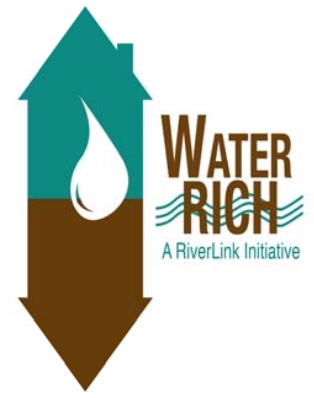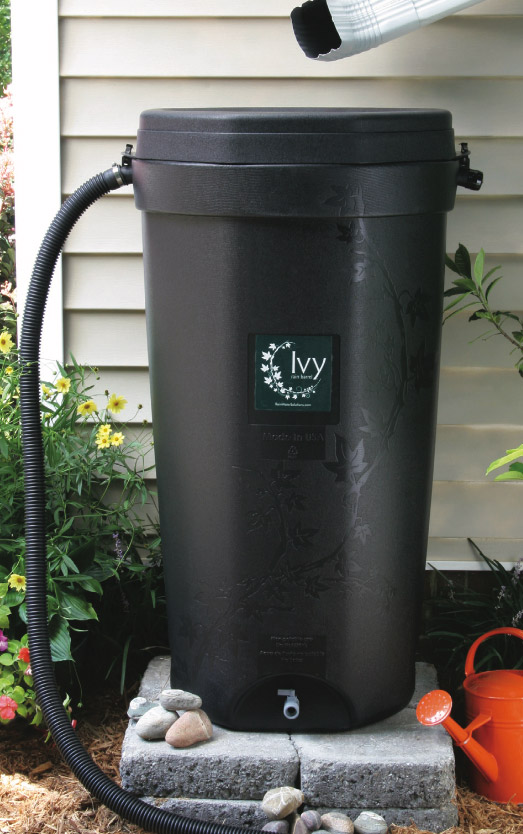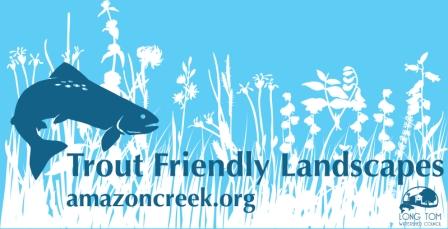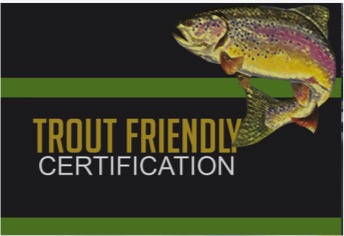
IN YOUR YARD
Even if you are not ready to implement the stormwater control measures discussed on the Stormwater > General Practices page, there are many simple things you can do to make your lawn more stormwater friendly! This short video is a great introduction.
Key Takeaways:
- Mow high and let the clippings lie – they contain 90% water, which is good for the lawn, and keeps nutrients out of waterways.
- Keep yard waste off the street and away from storm drains and drainage ditches.
- Compost clippings and leaves to create your own natural fertilizer.
- Have your soil tested before applying fertilizer if you must.
- Use Phosphorous-free fertilizers unless your soil is lacking in P, and use slow-release nitrogen fertilizers or organic compost.
- Reduce potable water use by choosing native and drought-resistant plants, and by collecting rainwater in a rain barrel. Rainwater also contains nutrients so can further reduce the need for fertilizer.
Take it to the next level
 If you do want to proactively manage stormwater at your home, Riverlink’s WaterRICH Guide provides easy-to-follow, low-cost instructions for:
If you do want to proactively manage stormwater at your home, Riverlink’s WaterRICH Guide provides easy-to-follow, low-cost instructions for:
- Selecting the best management practice for your home
- Building a rain barrel or cistern
- Building a rain garden
- Constructing a berm, swale, or check dam
- Installing a French drain
It also provides a list of WNC contractors for more advanced landscape design and installations like bioretention, wetlands, and pervious pavers.
Finally, it includes a detailed WNC plant list for different types of stormwater control measures.
 The NC Cooperative Extension also offers an easy to use rain garden resources that describe how to determine soil drainage, and site, size, and construct a rain garden. It also offers a planting schematic for different drainage timeframes, and describes common maintenance tasks. Native plants are encouraged since these require the least maintenance and provide critical wildlife habitat and food, and invasive species should be avoided. NCSU’s Going Native website provides details on native plant landscaping.
The NC Cooperative Extension also offers an easy to use rain garden resources that describe how to determine soil drainage, and site, size, and construct a rain garden. It also offers a planting schematic for different drainage timeframes, and describes common maintenance tasks. Native plants are encouraged since these require the least maintenance and provide critical wildlife habitat and food, and invasive species should be avoided. NCSU’s Going Native website provides details on native plant landscaping.
Rain Barrels are another simple addition to your home that reduce runoff and provide water for your landscape and other outdoor water needs. For example, a 1000 sqft. roof sheds 625 gallons in a 1” rainfall. Refer to this website for more information about water harvesting and rain barrels. Riverlink’s WaterRICH Guide, referenced above, describes how to build your own rain barrel, and several communities and counties have discounted rain barrel programs, see Hendersonville and Buncombe County for examples.
While there are currently no official Trout Friendly Lawn Care programs in North Carolina, these organizations can provide more information and ideas for how you can be trout friendly too!
Long Tom Watershed Council Wood River Land Trust

